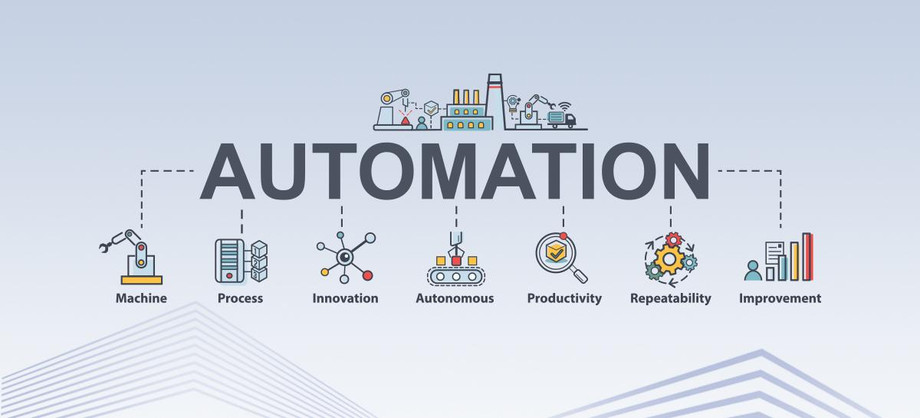Industrial Automation involves the use of technology to control and streamline industrial processes. This can include the use of computers, robotics, and other systems to automate tasks that would otherwise be done manually. From using robots to assemble products to using sensors and software to monitor production line performance, the goal of industrial automation is typical to improve quality and safety while reducing costs.
Automating processes can improve efficiency and accuracy. PLC (programmable logic controller) and SCADA (Supervisory Control and Data Acquisition) systems are effective automation apparatuses that automation companies make to make industrial automatics more successful. As a result, industrial automation is used in a wide range of industries, including manufacturing, agriculture, transportation, and more.
- Benefits of industrial automation
The use of Industrial Automatics has increased dramatically in recent years, as manufacturers strive to improve quality and efficiency while reducing costs. There are many benefits of industrial automation, including increased productivity, improved product quality, reduced scrap and rework, and improved safety. In addition, automated systems can often be better at troubleshooting and problem-solving than their manual counterparts. As the use of industrial automation continues to grow, so too will the benefits it provides.
- How does industrial automation work?
One of the most common forms of industrial automation is robotic assembly. Here, robots are used to perform tasks such as welding, painting, and material handling. These robots are typically programmed to carry out specific sequences of actions, and they can work around the clock without rest or supervision. This helps to improve productivity and accuracy while reducing labor costs.
Another common form of industrial process automation is the use of sensors and software to monitor production lines. By tracking key performance indicators such as cycle time, reject rate and yield, manufacturers can identify problems early and take corrective action. This helps to improve quality while also reducing waste and downtime.
Finally, many industrial automation systems make use of artificial intelligence (AI) technologies. AI can be used for tasks such as predictive maintenance, quality control and process optimization. By using AI, manufacturers can further improve quality and efficiency while reducing costs.
- Role of PLC and SCADA in Industrial Automation
PLC and SCADA are two of the most important tools required by automation companies. PLC is a device that can be programmed to perform a variety of tasks, including controlling machinery, monitoring process parameters, and more. SCADA is a software system that allows for the remote monitoring and control of industrial equipment. Both PLC and SCADA are essential for modern industrial automation systems. PLCs are used to control the operation of machinery, while applications of SCADA include monitoring process parameters and making changes as needed. Together, these two technologies help to make industrial automation systems more efficient and effective.
- Which industries are using automation most effectively?
Industries that use PLC and SCADA most effectively are typically those that require machines to operate autonomously or with little human intervention. This can include manufacturing plants, automotive assembly lines, and even some medical facilities. PLC manufacturers in India design these effective systems to monitor and control a variety of equipment and processes, so they can be extremely helpful in industries where machines need to run smoothly and efficiently. Additionally, PLCs can help to improve safety in industries where there is a risk of injury to workers. By automating dangerous tasks, PLCs can help to prevent accidents and injuries. In short, PLCs are most effective in industries where machines play a significant role in the operation of the business.
- Where is industrial automation headed in the future?
The industrial automation industry is currently undergoing a period of significant change. In the past, automation was primarily used for tasks that were repetitive and low-skill. However, advances in artificial intelligence and robotics are beginning to change this. Automation is now being used for a wider range of tasks, including many that are traditionally considered to be high-skill. This trend is likely to continue in the future, as more and more companies begin to adopt automation technologies. In addition, the increasing availability of data is another major factor driving the development of industrial automation. As data becomes more plentiful and easier to access, it will become increasingly easy for companies to use it to improve their automated systems. As a result, industrial automation is likely to continue to evolve at a rapid pace in the coming years.
- Messung’s industrial automation solutions
Messung has been a leading innovator as a PLC manufacturing company for over 40 years. Our PLC systems are the most reliable and user-friendly on the market, and our team of experts is always available to help you with your automation needs. Our experience and expertise set us apart from the competition. As a pioneer PLC manufacturer in India, we understand what it takes to create efficient and reliable systems that meet our customer’s needs.
With a wide variety of PLC systems, Messung has the perfect system for your unique requirements. We provide comprehensive support so that you can focus on your business goals. When you choose Messung, you can be assured that you are getting the best possible product and service available. Contact us today to discuss your automation needs, and we will be happy to provide a proposal tailored specifically for you.

